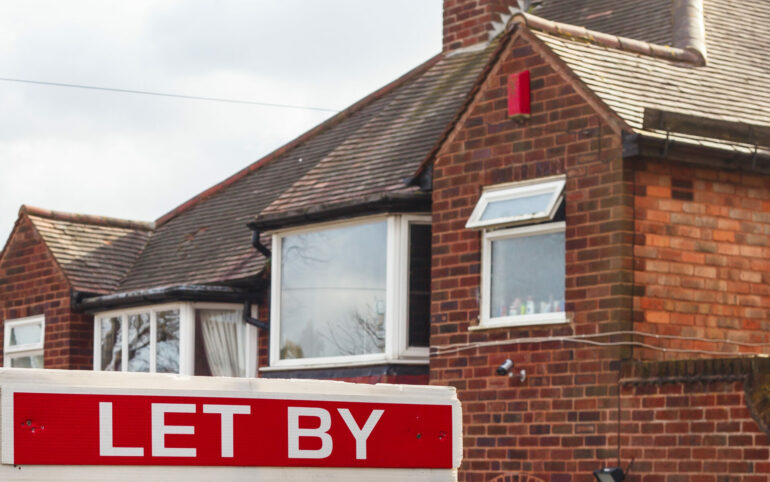The Office for National Statistics (ONS) has released the latest figures for the Price Index of Private Rents (PIPR), showing a 9.0% rise in average private rents across the UK in the year to February 2024. This increase surpasses the growth rate reported up to January 2024.
Regionally, England saw monthly rents climb by 8.8% to an average of £1,276, with Wales closely matching this increase at 9.0%, reaching £723. Scotland experienced the highest surge among the home nations, with rents jumping by 10.9% to £944. Northern Ireland had previously reported a 9.3% rise in the 12 months to December 2023.
London led the way in England with a significant 10.6% rise in private rents, while the North East saw the most modest increase at 5.7%. The disparity across Great Britain is stark; Kensington and Chelsea in London boasted the highest average private rent at a steep £3,248, in sharp contrast to Dumfries and Galloway’s modest £472.
In an interesting twist, house prices moved in the opposite direction, with the average UK house price falling by 0.6% in the year to January 2024, although this is an improvement on the 2.2% decline seen in December 2023.
Free news agency Newspage asked experts for their opinions.
Reaction
Michelle Lawson, director at Lawson Financial:
“These figures make for grim reading but come as no surprise. Landlords in the private rental sector have been crippled by increased costs with higher mortgage rates, huge tax bills and burdensome and costly regulation. The unintended consequences of this has meant tenants, some of whom are already financially on the edge, would suffer in the long run. Many experts have warned the Government about the impact of a frontal assault on landlords but their efforts have been ignored.”
Hannah Bashford, director at Model Financial Solutions:
“As shocking as this data is, it’s not a surprise as we have seen many landlords having to raise their rents to cover the increased interest costs and satisfy lenders’ affordability criteria. The rental market is broken and those that do not have mortgages are reaping the benefits of these hikes, while others are just about clinging onto their investments. These rents make it almost impossible to save for a deposit and so the circle continues.”
Dariusz Karpowicz, director at Albion Financial Advice:
“Rents are soaring, tightening the squeeze on everyone’s wallet amid the cost of living crisis. Buy-to-let mortgage rates are sky-high, meaning landlords are being forced to hike rents, sometimes steeply, especially if they’ve held off on increases for years. With a 9% jump in UK private rents in the year to February 2024, and even sharper rises in places like Scotland and London, the pressure is palpable. There’s no sign of rent relief soon. Sadly, I predict rents will continue their upward trajectory, making affordable living spaces even harder to find.”
Ben Perks, managing director at Orchard Financial Advisers:
“As costs have increased for landlords, it’s no surprise that they have passed this on to tenants. Landlords across the UK have finished low fixed rates over the past 12 months and seen a dramatic increase in mortgage payments. Many have to increase the rents just to break even. This drives up the average market rent for properties and then other landlords follow suit. Rents will continue to increase until the Bank of England drops the base rate and alleviates the pressure on borrowers. As we can see in this data, high interest rates don’t just impact mortgage holders but renters, too.”
Gary Bush, financial adviser at MortgageShop.com:
“With the disaster of high mortgage rates comes super-high rents. With rental inflation variation of 10.6% in London and still an eyewatering 5.7% in the cash-starved North East of England, surely the Bank of England can understand that the population is straining and ease off in tomorrow’s monetary meeting?”
Riz Malik, director at R3 Mortgages:
“This level of increase is not sustainable and hampers first-time buyers aspiring to get on the housing ladder. Given the government has all but abandoned first-time buyers while squeezing landlords, I fear there is worse to come for renters in the private rental sector.”
Ranald Mitchell, director at Charwin Private Clients:
“Private rents surging by 9% year-on-year are a direct result of several years punishing buy-to-let market conditions Landlords have faced. These levels could begin to reshape the rental market, with more demand on smaller, more affordable homes further inflating the rents on these, whilst larger, less affordable properties may see a fall. Home sharing may become more prevalent as people get priced out of their own space and we’ll likely see a strong rise in property conversions to smaller dwellings.”
Rohit Kohli, director at The Mortgage Stop:
“While this morning’s inflation figures are being warmly welcomed, these rental figures provide a stark reminder that not everyone will be celebrating. With rents rising by 9%, renters can be forgiven for thinking they are still in the middle of a cost-of-living crisis. This is yet another indicator for the Bank of England to consider in their base rate decision tomorrow.”
Jonathan Gordon, director of Wealth Management at IP Global:
“It’s brutal for tenants at present. Landlords are facing rising costs, which in turn has led to rent increases for tenants. This creates an extremely difficult situation for renters in the UK, as wages are often not keeping pace with rent hikes. While house prices have seen a slight dip, the consistently high demand for housing suggests significant price drops are unlikely.”



